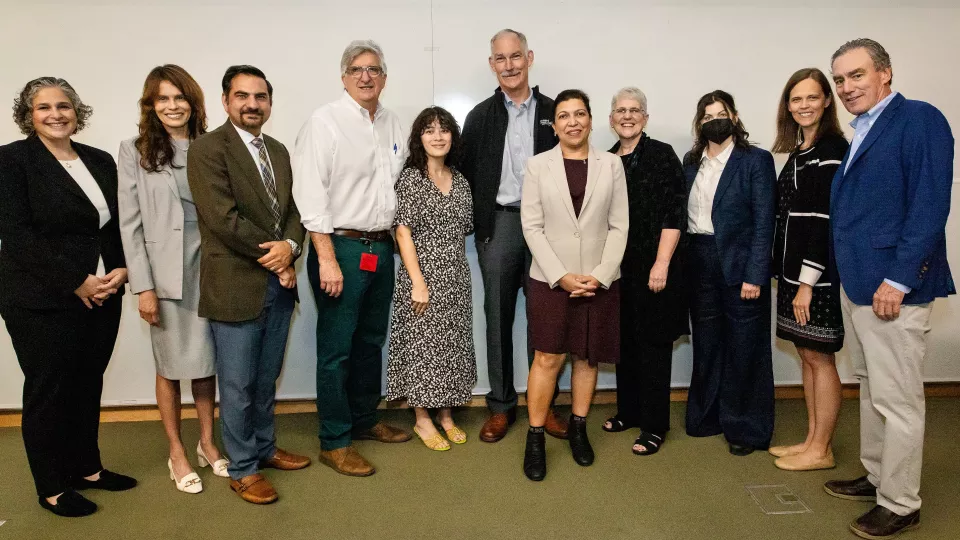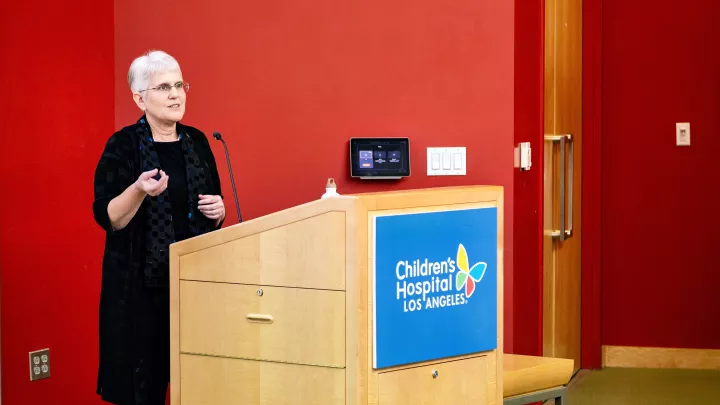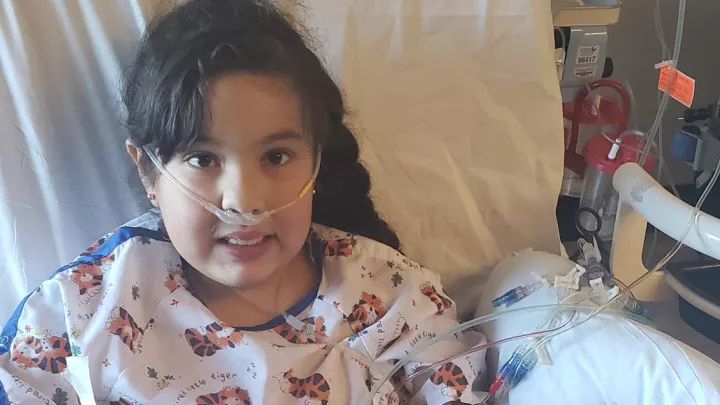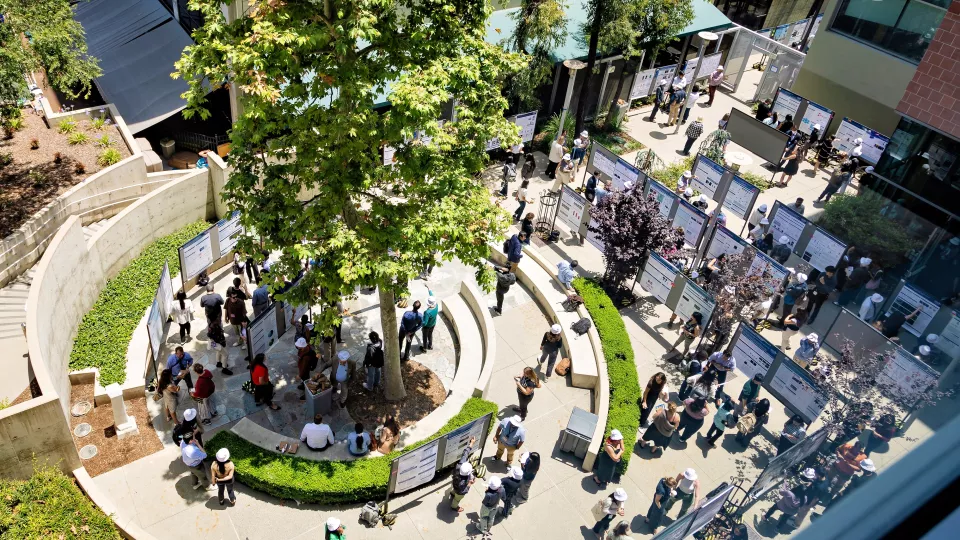
The Saban Research Institute Hosts Annual Science Day With Focus on Long COVID Research
On June 18, more than 450 researchers, physicians, trainees and staff gathered to share novel findings, discuss current challenges and forge new scientific collaborations at Science Day 2024—The Saban Research Institute’s (TSRI) annual symposium and poster session at Children’s Hospital Los Angeles.
This year’s theme was “Long COVID in Pediatrics: Implications for Individual and Population Health Outcomes.”
“Though the pandemic has waned… a significant number of young patients continue to be affected by chronic symptoms due to COVID infection,” said Executive Vice President and Chief Operating Officer Lara Khouri in the opening session. “We’ve observed and are getting our early measurements of the impact of long COVID’s effects on the immune, respiratory, cardiac, gastrointestinal and neurological systems of children, adolescents and adults.”
Pat Levitt, PhD, CHLA’s Executive Vice President, Chief Scientific Officer and Director of TSRI, kicked off the day by reiterating the critical value of deep conversations and rich scientific collaborations that Science Day is designed to foster:
“Science is very social. Interactions matter a lot, and that is what today is all about.”
Key highlights from the day:
Addressing the long-term impacts of COVID-19 on children and adolescents
In the U.S. alone, nearly 6 million young people are affected by long COVID. The condition can affect every organ system, resulting in headaches, fatigue, chronic body pain, respiratory distress, brain fog and more.
While researchers at CHLA and across the country continue to make progress in understanding long COVID pathophysiology, symptomology and treatments, supported by major longitudinal studies like the National Institutes of Health (NIH)-funded RECOVER Initiative, our understanding of how to accurately diagnose long COVID and the ways in which it affects children long term remains relatively unknown. Most critically, there has yet to be a treatment option validated by randomized controlled trials.
As Dr. Levitt pointed out in his opening remarks, a recent Science Magazine article co-authored by Ziyad Al-Aly and Eric Topol makes several compelling arguments for a greater focus by our scientific community and more funding to address this national and worldwide health crisis.
“Today is about COVID but it’s more than that,” shared Dr. Levitt, quoting from the article, “‘The world must rise to the occasion to address these challenges. The health and wellbeing of future generations depend upon it.’”
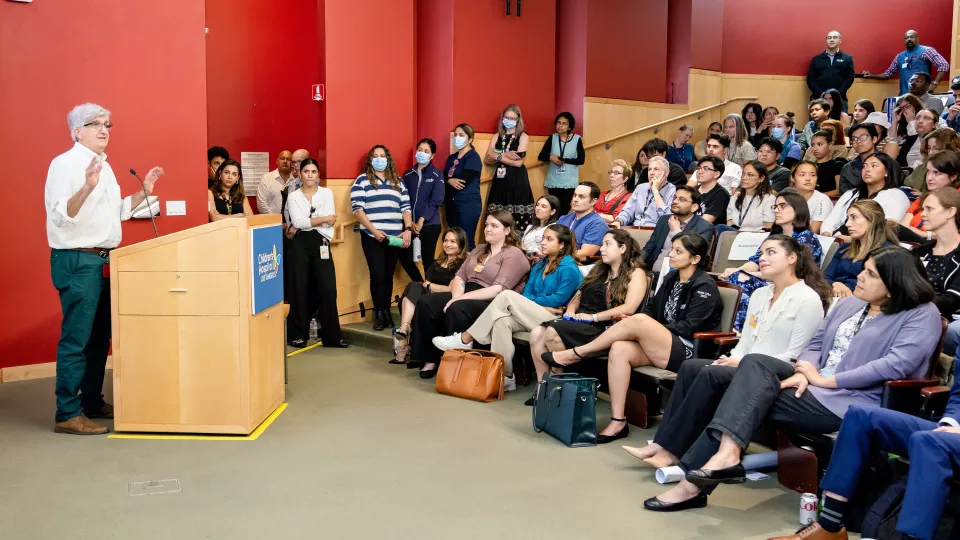
New clues from top long COVID researchers
The event opened with three research deep dives from experts at CHLA, Harvard Medical School and Emory School of Medicine.
David Systrom, MD, a pulmonologist at Brigham and Women’s Hospital and Assistant Professor at Harvard Medical School, shared research he and colleagues are conducting at Brigham and Women’s Hospital to uncover the mechanisms behind post-exertional malaise (namely, fatigue and flu-like symptoms prompted by minimal physical or mental activity) in people with long COVID.
Using invasive cardiopulmonary exercise tests, Dr. Systrom’s team found three key commonalities connected to the malaise: small fiber autonomic neuropathy, biventricular preload failure and impaired systemic oxygen extraction, which point to underlying neurovascular dysregulation.
In other words: It appears that in some cases, long COVID symptoms aren’t caused by damage to the heart or lungs, but rather by damage to small nerves in the skin or other internal organs, and, in turn, the signals from the peripheral nervous system that regulate blood flow and oxygen delivery to the body.
Cheryl Maier, MD, PhD, Medical Director at Emory School of Medicine’s Special Coagulation Laboratory, outlined her team’s findings on how severe COVID-19 affects the blood’s ability to coagulate—often resulting in “really sticky blood”—and how the mechanisms behind this impaired clot breakdown differ across adults and kids.
In adults, Dr. Maier pointed to high fibrinogen and endothelial dysfunction. However, in children, the data demonstrate strong inflammation and a cytokine-driven response, hinting at immune dysregulation as the key culprit, and highlighting the importance of studying diseases like COVID in children and adults as they are affected differently.
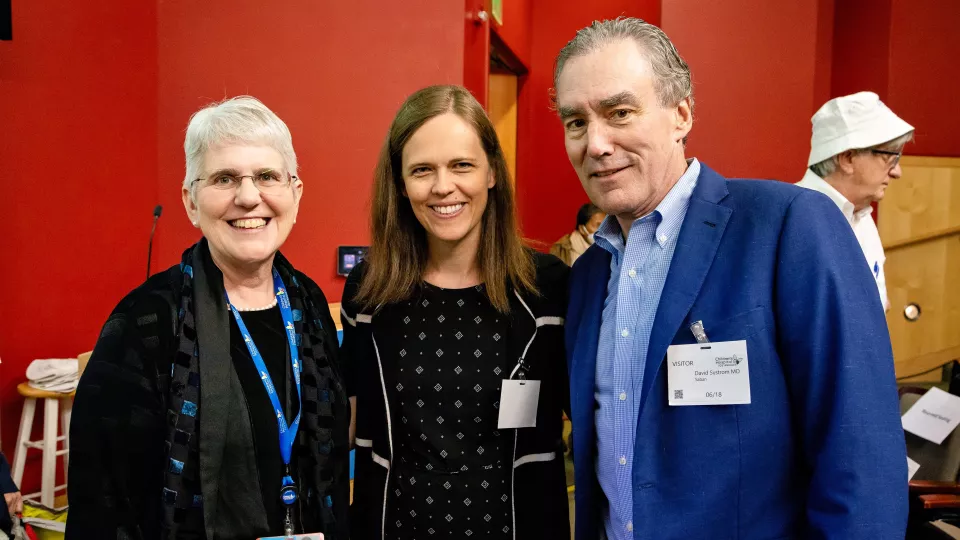
Jacqueline Szmuszkovicz, MD, Medical Director of the Kawasaki Disease and Pulmonary Hypertension Programs within the Heart Institute at CHLA, illuminated the critical research she leads to support the nearly 10,000 U.S. children and adolescents who have contracted multisystem inflammatory syndrome in children, or MIS-C.
MIS-C is a serious, potentially life-threatening illness that follows COVID-19 infection. It often results in inflammation across multiple systems of the body. Dr. Szmuszkovicz’ data show that 54 percent of children who had cardiac follow ups after MIS-C diagnosis and treatment had evidence of heart injury.
Understanding the pathophysiology and clinical features of MIS-C may also help researchers discover essential information about another rare inflammatory disorder called Kawasaki disease.
Ultimately, Dr. Szmuszkovicz sees these discoveries as a testament to “the power of working together across studies to understand MIS-C,” pointing to multiple NIH-funded studies like RECOVER, MUSIC, and PrevAIl as critical in the effort to understand and treat long COVID-related disorders.
A family affected by long COVID: Advocate perspectives on patient-led research
For the first time in its history, the symposium welcomed a patient advocate to the Science Day stage.
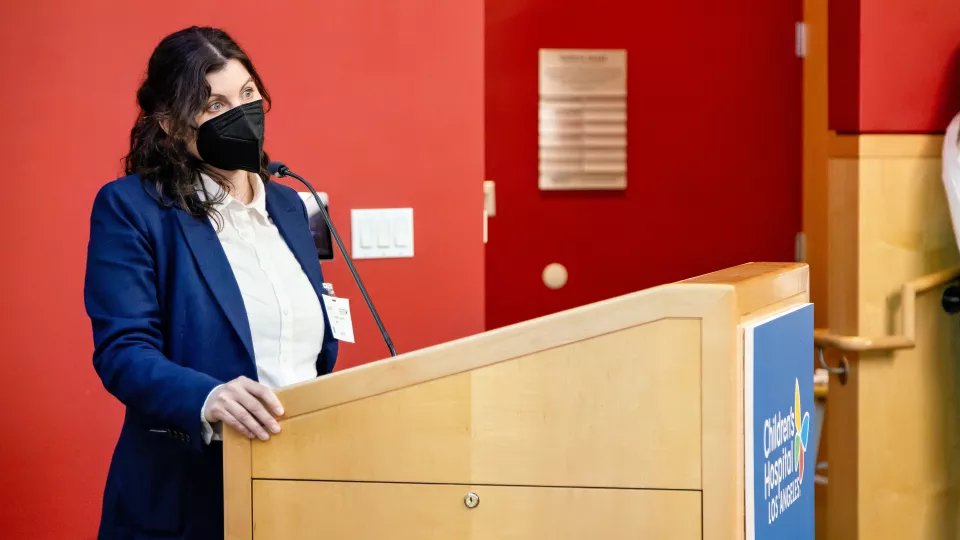
Krista Coombs shared how her world turned upside down in 2020 after she and her two young daughters contracted COVID-19. In the four years following infection, Krista and her girls have experienced a barrage of painful, exhausting and frustrating symptoms that make it nearly impossible to work, attend school and carry out everyday tasks.
Krista shared personal stories of seeking treatment across seemingly endless providers, health systems and state lines—many resulting in dead ends—as well as perspectives from other families in the “long hauler” community. She is committed to advancing long COVID advocacy through many roles, serving as a patient advocate, peer counselor, caregiver and constituent voice.
As a Caregiver Representative for the RECOVER Initiative, Krista affirmed the importance of including lived experience in research. “The RECOVER study’s recognition of caregiver experiences has helped us feel heard and supported,” she shared.
Poster sessions and data blitz
In the afternoon, attendees gathered in the courtyard to explore 119 poster presentations from CHLA researchers, with abstracts covering five major categories: Basic Science, Clinical Research, Community Research, Medical Education Research and Quality Improvement Research.
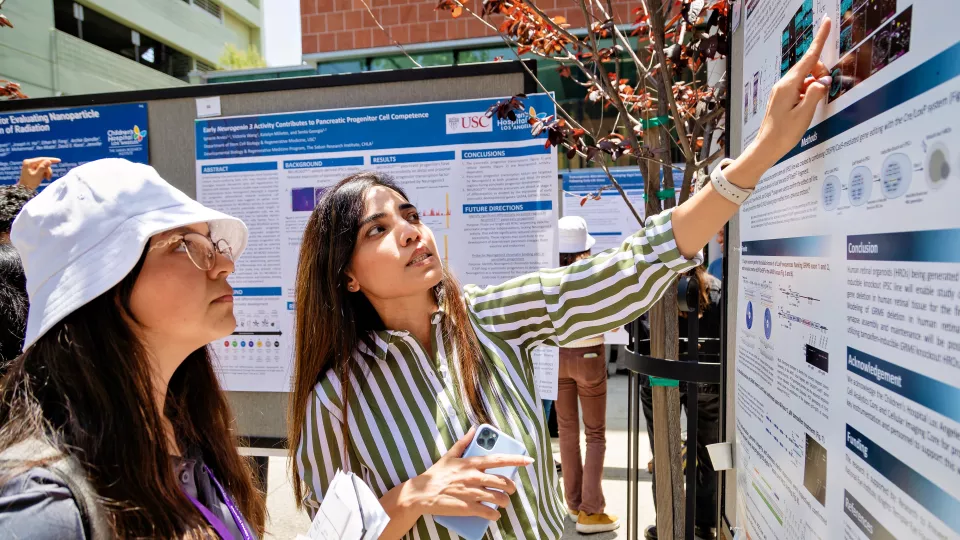
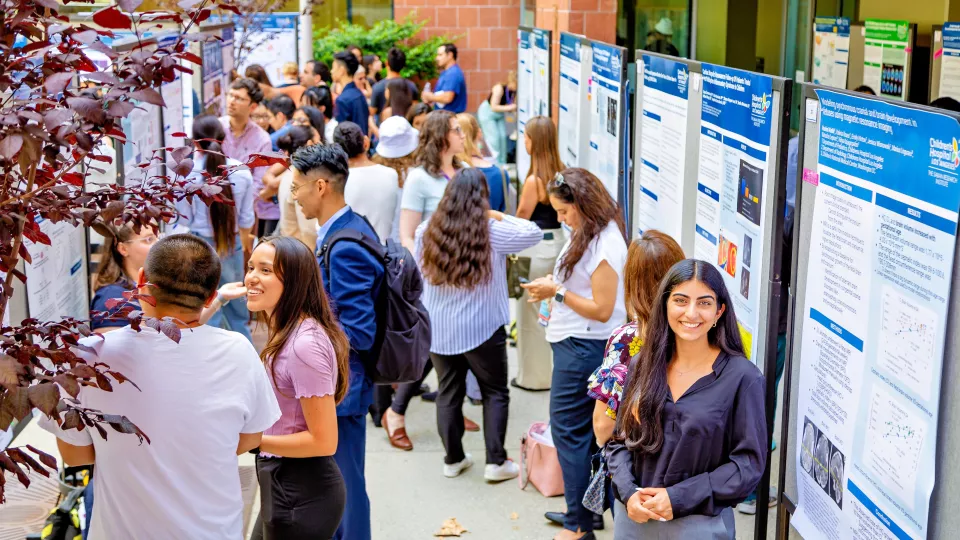
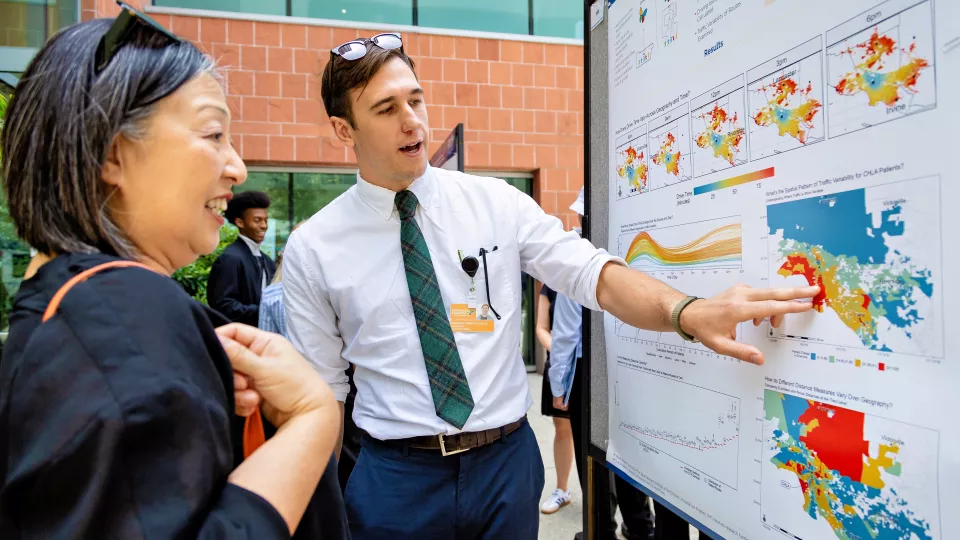
Before judges unveiled best poster winners, 10 selected finalists presented bite-sized versions of their research findings in a data-blitz program. Organizers also presented the winners of the Cellular Imaging Core’s image contest.
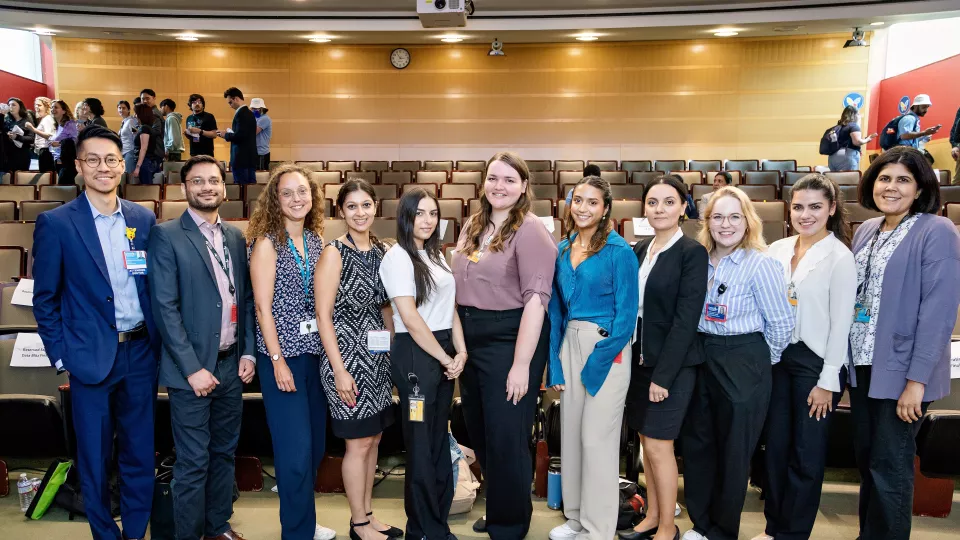
Where we go from here
Dr. Levitt closed out Science Day by reiterating the importance of supporting transformative research at the system, state and national levels to accelerate lifesaving discoveries, and encouraged attendees to remain active and vocal in advocating within their communities.
“Research is the way we discover ways of treating and intervening and preventing.”
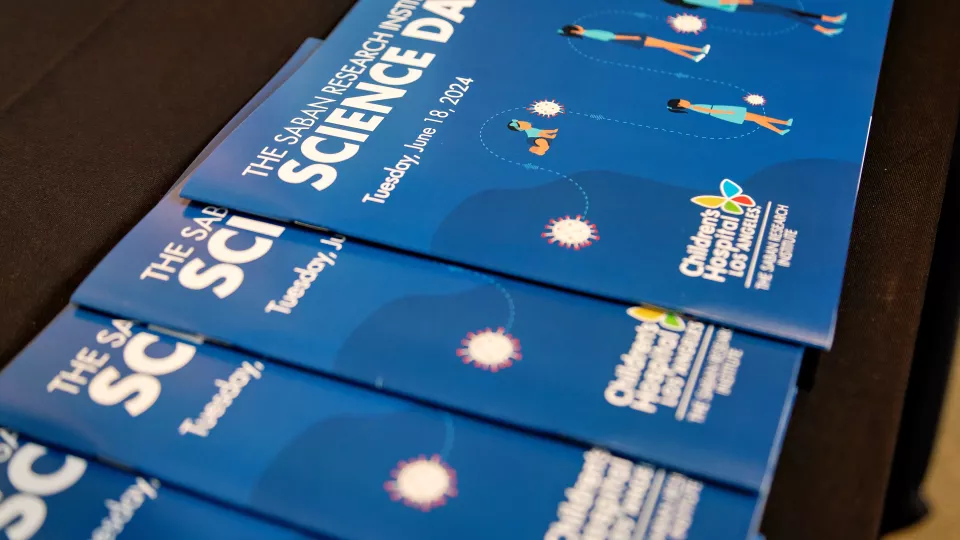
Thanks to the organizers
Symposium Committee: Jennifer Dien Bard, PhD,D (ABMM), FIDSA, FAAM, Senta Georgia, PhD, Sindhu Mohandas, MD, and John Wood, MD, PhD
Poster Session Committee: Anoopindar Bhalla, MD, Shana Adise, PhD, and Christopher Kuo, MD
Pat Levitt, PhD, Chief Scientific Officer, Senior Vice President and Director, TSRI
Paul S. Viviano, President and Chief Executive Officer, CHLA
Science Day Co-Organizers: Bridget Fernandez, MD, MS, FRCPC, FCCMG, FACMG, and Rohit Kohli, MBBS, MS
TSRI's space team and The Office of Training, Education, Career Planning and Development (TECPAD)
